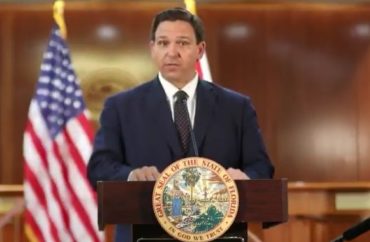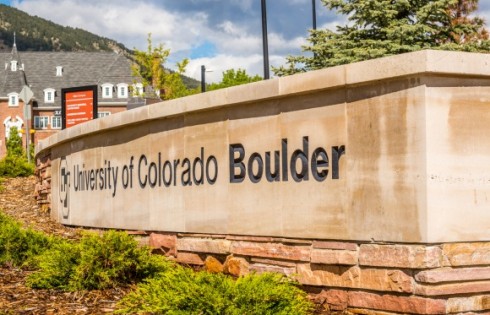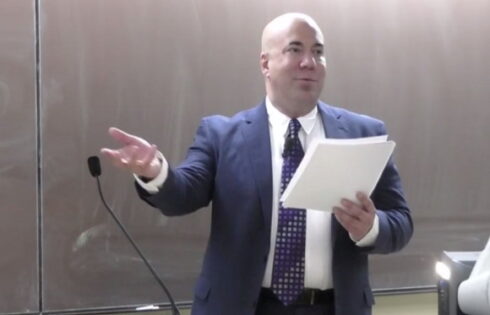
State is ‘on track to serve the most students per capita,’ says expert
Florida Governor Ron DeSantis has signed an education bill that allows for greater school choice in his state.
The new law, which streamlines Florida school choice scholarship programs and expands eligibility, was touted by DeSantis at a May 11 news conference at Jacksonville Catholic School.
Children in families of four that earn less than $100,000 will be eligible for a fully funded K-12 education at the school of their choice.
Big year for school choice
The College Fix reached out to Neal McCluskey, director at the Cato Institute’s Center for Educational Freedom, for his thoughts on the legislation. He said he sees the bill as a clean victory for school choice.
“Florida has long been a leader on choice, eventually having five different private choice programs,” he said. “So many programs could be confusing. Reducing the number by consolidating programs, while making more families eligible, should greatly increase educational freedom for Floridians.”
Jason Bedrick, director of policy at EdChoice, said in an email that this bill proves Florida “continues to be a pioneer for educational choice.”
Right now, Florida has the most students “in total” using school choice programs, he said. On a “per capita” basis it is behind only Arizona, but not for long.
“With the state’s significant eligibility expansions this year, Florida is on track to serve the most students per capita as well,” he said.
Though Florida might not enjoy that per capita lead for long. “Indiana’s voucher and West Virginia’s new education savings account have even broader eligibility,” Bedrick added.
“This year has been a banner year for educational choice. So far this year, 11 states have adopted five new programs and expanded 11 existing ones, and several more states are likely to act in the coming weeks,” he told The Fix.
Selling school choice
McCluskey likes to talk up school choice, and doesn’t think it takes away from public schools.
There is an “overwhelming body of evidence” showing that the competition is good for public schools and good for the students, he said.
McCluskey also thinks that school choice is highly relevant, given America’s current hot-button social conflicts.
“The current, national, heated battles over the teaching of critical race theory and rules regarding transgender athletes reveal the desperate need for school choice, which is how we can keep government from deciding who wins — and loses — conflicts over whose basic values and rights will be upheld. Everyone should be able to choose what they think is best,” he said.
Though there are many counter arguments to school choice, McCluskey and co-editor Corey DeAngelis tackled these arguments in the book “School Choice Myths.”
One of the most common myths put forward by school choice opponents, according to McCluskey, is that “school choice siphons money from public schools.”
“The myth starts with the mistaken premise that public education is only about public schools — only those institutions should get education funding — and then proceeds to ignore the major savings, and increased resources per-pupil remaining in public schools, that typically accompany school choice programs,” he said.
The Cato Institute recently held a forum dedicated to addressing the school funding issue, which included the authors of that chapter: Marty Lueken of EdChoice and Ben Scafidi of Kennesaw State University.
Another myth McCluskey pointed out was that with school choice “we’d all be ‘balkanized’ in our own little, presumably warring, enclaves, and certainly would not produce good citizens.”
“I have a chapter showing the balkanization is at a minimum not likely to be worse with choice than with public schooling, and choice will almost certainly foster peace and, slowly, more unity,” he told The Fix.
“Patrick Wolf of the University of Arkansas has what I think might be the most important chapter, reviewing all the available empirical research on private schooling and citizenship and showing that it overwhelmingly points to a private school advantage in creating knowledgeable and tolerant Americans,” he said.
IMAGE: Ron DeSantis/Twitter
Like The College Fix on Facebook / Follow us on Twitter






Please join the conversation about our stories on Facebook, Twitter, Instagram, Reddit, MeWe, Rumble, Gab, Minds and Gettr.